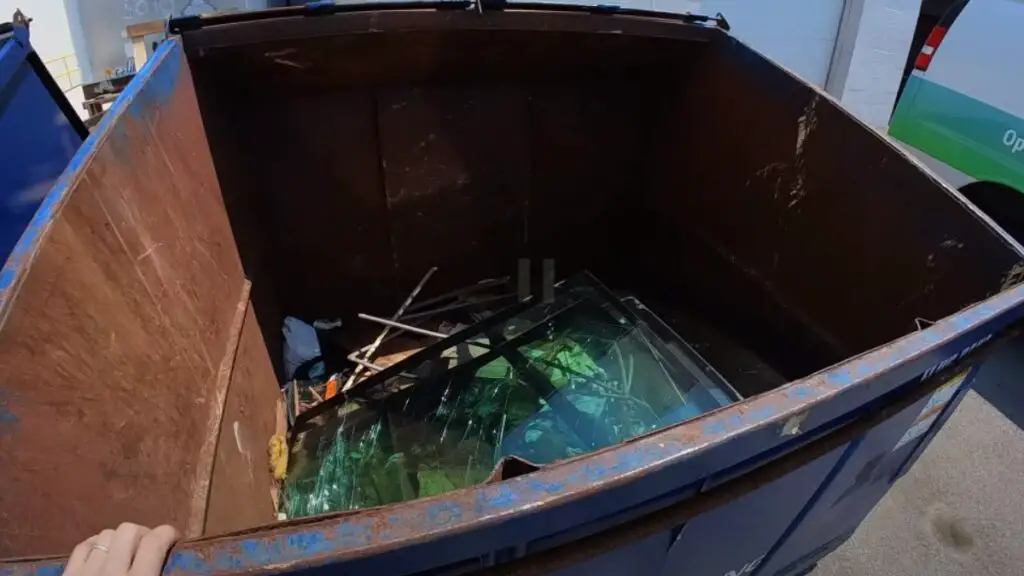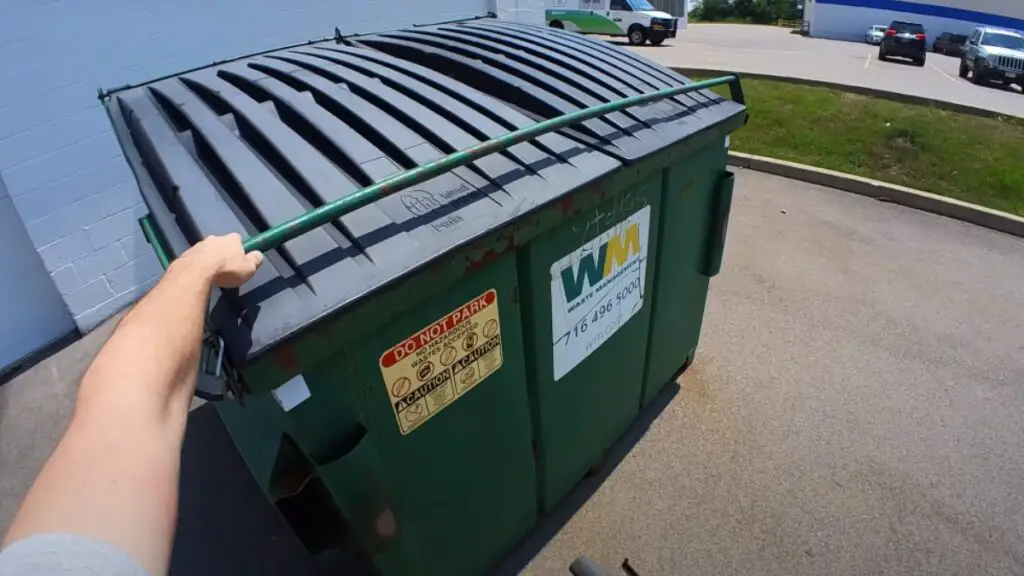If you’re a professional dumpster diver and looking to dive in Alaska, then you must understand the Alaska laws.
In this article, we will discuss whether it’s legal or illegal to dumpster dive in Alaska.
We will also dive into the earning potential and the safety precautions for dumpster diving.
Dumpster Diving In Alaska

Dumpster diving has become a surprisingly effective method for waste reduction and sustainability.
In Alaska, with its unique climate and geographical conditions, the practice takes on a new dimension.
According to the Alaskan Department of Environmental Conservation, the state produced an estimated 1.2 million tons, a significant amount of which could be repurposed.
This practice could play a crucial role in reducing Alaska’s waste footprint and contributing to the environment.
Is Dumpster Diving Illegal In Alaska?
In most parts of Alaska, dumpster diving is not explicitly illegal, but it is regulated by various laws and ordinances that could potentially criminalize certain aspects of this activity.
For instance, trespassing laws may come into play if the dumpster is located on private property or if there are explicit no trespassing signs.
In Anchorage, the largest city in Alaska, Municipal Code 8.55.230 implies that taking materials from a garbage bin without the permission of the owner is unlawful.
Fairbanks is another major city, City Code 66-30 states that scavenging in waste containers is prohibited.
Furthermore, it is worth noting that Alaska has a statewide littering law, which could potentially be involved if a dumpster diver leaves a mess behind.
Is Dumpster Diving Illegal At Night In Alaska?
In Alaska, there is no statewide law that explicitly prohibits dumpster diving at night or any other time. However, this does not mean it is without potential legal consequences.
If the dumpster is on private property or if it is clearly marked with “No Trespassing” signs, then diving into that dumpster may be considered trespassing.
Which could result in a punishment of up to 30 days in jail and a fine of up to $500, according to Alaska’s Penal Code (AS 11.46.330).
However, due to specific city ordinances, dumpster diving might be illegal at night in certain municipalities.
Best Places To Go For Dumpster Diving In Alaska
If you’re interested in dumpster diving, Alaska provides its unique set of opportunities.
Anchorage, the state’s largest city, is reported to be a dumpster diver’s paradise.
Every year, at the end of the fishing season (May – September), you can find discarded fishing gear in downtown dumpsters.
Another notable time is the end of university semesters when students discard items they can’t take home.
The University of Alaska Anchorage and Alaska Pacific University are common spots where you can find books, furniture, and sometimes electronics.
Fairbanks, the second-largest city in Alaska, shouldn’t be overlooked either.
Although it’s colder and has more restrictions on dumpster diving, you could still find valuable items, particularly in residential areas near the University of Alaska Fairbanks, around the same university term end periods.
Here are some best places for dumpster diving in Alaska:
- Anchorage
- Fairbanks
- Juneau
- Sitka
- Ketchikan
- Wasilla
- Kenai
- Kodiak
- Bethel
- Palmer
How Much Money Can You Make From Dumpster Diving In Alaska?
The exact amount you can make from dumpster diving in Alaska varies significantly and depends on numerous factors.
However, some experienced dumpster divers report earning between $10 to $30 an hour on average.
Which can add up to approximately $200 to $600 per week or $800 to $2400 per month for consistent part-time effort.
This figure could be influenced by the area of operation, the types of dumpsters targeted, as well as the local waste management policies.
Dumpster diving can yield a wide variety of valuable items, such as discarded electronics, furniture, clothing, and even unexpired food items from grocery stores.
A study by the Food Waste Reduction Alliance found that in 2013, 84.3% of unsold food in American retail stores, including those in Alaska, ended up in dumpsters.
Savvy dumpster divers can find these unexpired food items and either use them or sell them.
However, it’s important to note that dumpster diving is not a stable source of income, and the profitability varies greatly.
It requires a significant amount of time and effort and is subject to legal restrictions in certain areas.
So, if you are planning to dumpster dive at Alabama, Montana, GameStop, or Massachusetts; first you should check the state laws before going to your hunt.
Safety Precautions For Dumpster Diving In Alaska
Dumpster diving in Alaska can be an adventurous and potentially rewarding activity.
Here are some tips to ensure you stay safe while dumpster diving in Alaska.
1. Wear Protective Gear
To protect yourself from potential hazards such as sharp objects, wear sturdy gloves, long-sleeved shirts, and long pants.
Consider wearing waterproof boots as well to keep your feet dry and slip-free.
2. Cautious Of Wildlife
Alaska is home to a variety of wildlife, some of which can be dangerous. Be mindful of bears and other animals that might be attracted to the dumpsters, especially during the salmon season.
3. Avoid Climbing
While it might be tempting to climb into a dumpster to dig deeper, avoid doing so.
Slips and falls can lead to serious injury. Instead, use a reaching tool to access items that are out of reach.
4. Hazardous Materials
Always be aware of what you’re touching. Avoid any containers with hazardous material labels, and be wary of items such as batteries, broken glass, or any substance that might contain harmful chemicals.
Clean Up
Respect the community and the environment by cleaning up after yourself.
Don’t leave trash outside of the dumpster, and ensure the area is as clean as, if not cleaner than when you arrived.

Frederick Perez is the founder of Scrape Dude. He loves exploring and finding hidden treasures in unexpected places. Frederick has been dumpster diving and gold panning for years, turning his hobby into our website to share his adventures. He’s known for his friendly advice and exciting stories, inspiring others to discover the joy in these unique hobbies. His expertise makes Scrape Dude a trusted and fun place to learn and explore.


